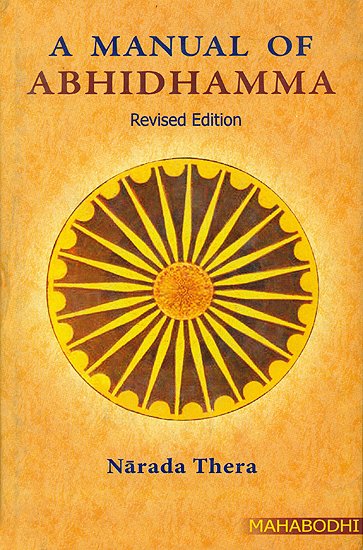A Manual of Abhidhamma
by Nārada Thera | 80,494 words | ISBN-13: 9789380336510
In the Abhidhammattha Sangaha there is a brief exposition of the Law of Dependent Origination, followed by a descriptive account of the Causal Relations that finds no parallel in any other philosophy. Edited in the original Pali Text with English Translation and Explanatory Notes by Narada Maha Thera....
§ 6.
- (a) Akusalesu pana Moho, Ahirikam Anottappam, Uddhaccam c'āti cattāro'me cetasikā sabbākusalasādhāranā nāma. Sabbesu'pi dvādasākusalesu labbhanti.
- (b) Lobho atthasu lobhasahagatesv'eva labbhati.
- (c) Ditthi oatusu ditthigatasampayuttesu.
- (d) Māno catusu ditthigatavippayuttesu.
- (e) Doso, Issā, Macchariyam, Kukkuccam ca dvīsu patighacittesu.
- (f) Thīnam, Middham pañcasu sasankhārikacittesu.
- (g) Vicikicchā vicikicchāsahagatacittey'eva labbhatī'tī.
§ 7.
Sabbāpuññesu cattāro - lobhamūle tayo gatā
Dosamūlesu cattāro - sasankhāre dvayam tathā
Vicikicchā vicikicchācitte c'āti catuddasa
Dvādasākusalesv'eva - sampayujjanti pañcadhā
(translation)
§ 6.
-
Of the Immoral mental states these four[1] - namely,
1) Delusion, (Moral)
2) Shamelessness, (Moral)
3) Fearlessness, and
4) Restlessness - are common to every Immoral consciousness. - Attachment is found only in the eight types of consciousness rooted in attachment.
- Misbelief[2] is found in the four types of consciousness accompanied by wrong view.
- Conceit[3] is found in the four types of consciousness dissociated with wrong view.
- Hatred, Jealousy, Avarice, and Worry[4] are found in the two types of consciousness accompanied by ill-will.
- Sloth and Torpor[5] are found in the five types of prompted consciousness.
- Doubt is found only in the type of consciousness accompanied by doubt.
(Summary)
§ 7.
Four are found in all Immorals, three in those rooted in attachment, four in those rooted in ill-will and so are two in the prompted.
Doubt is found in the consciousness accompanied by doubt. Thus the fourteen are conjoined only with the twelve Immorals in five ways.
Footnotes and references:
[1]:
The root of every evil is moha (ignorance), because the evil-doer is not aware of the evil consequences. With it are associated shamelessness to commit the evil and disregard for the effects that follow. There is a certain amount of restlessness of the mind when an evil is committed.]
[2]:
As ditthi gives rise to the conception of "me" and "mine connected with oneself, it occurs in the consciousness rooted in attachment
[3]:
Māna too originates with the "I" - conception connected with oneself. As such it also is present only in types of consciousness rooted in attachment. Nevertheless, both ditthi and māna do not arise simultaneously in one particular consciousness. Where there is ditthi there is no māna. Commentaries compare them to two fearless lions that cannot live in one den. Māna may arise in those four types of consciousness dissociated with ditthi. But it does not follow that māna is ever present in them.
[4]:
These four cannot arise in a consciousness rooted in attachment because there is some form of aversion in them instead of any of clinging. Even macchariya is a kind of aversion to others' viewing with oneself.
[5]:
Thīna and Middha are by nature opposed to adaptability. They lack the urge. As such they cannot arise in types of consciousness that are unprompted (asankharika) which are naturally keen and active. They appear only in types of prompted consciousness.
